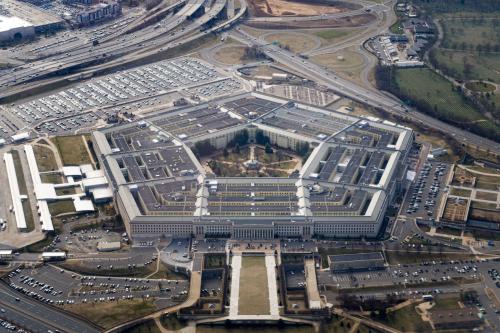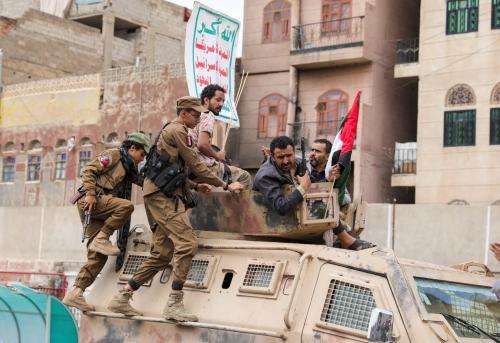As the U.S. sharpens the goals of its international coalition against terrorism, two separate missions must not be confused. The first mission is to punish the perpetrators, and their supporters, for the horror inflicted on the U.S on Sept. 11. The second is the broader fight against global terrorism. The former is about the right of self-defense, the latter about establishing new standards of international behavior.
To defend itself, the United States needs no international support in principle, even if it does in practice. Given the devastation and casualties caused by the terrorist attacks on the World Trade Center and the Pentagon, the U.S. needs only to prove responsibility before retaliating. The role of the international coalition that the U.S. is assembling is to maximize the chance of success, limit American casualties and reduce the backlash. Coalition partners will be needed to contain the political fallout in the Middle East and South Asia and to provide covert support and intelligence, but U.S. military capabilities are significant enough to respond to the terrorist attacks.
But the bigger, longer-term U.S. fight against world terrorism will require more international cooperation if Washington wants to succeed and preserve the moral authority it now commands. If a nation is not attacked by a terrorist organization or a state that harbors terrorists, what’s the basis for attacking it? Of the thousands of terrorist groups around the world, which do we go after? President Bush has wisely begun to refine this second mission by concentrating on terrorist groups with “global reach.” But there remains the question of which organizations to target. States differ widely on what they consider a “terrorist” group. Some governments classify mere opposition groups as terrorist. Others refuse to accept the U.S. classification scheme. How should we classify some of the Iraqi opposition groups that we support, or the Lebanese militant group, Hezbollah, that we oppose? Most in the Middle East deny that Hezbollah is a terrorist organization because its primary target is Israeli soldiers on Lebanese soil. We can disregard the arguments of other states and target whichever terrorist enterprise we want. But we would increasingly find ourselves alone in our pursuit of terrorists, an opening that terrorists would exploit.
The solution? The U.S. should take the moral high ground by developing an international consensus to prevent deliberate terrorist attacks on civilians, wherever such attacks may occur. Just over a week ago, the U.N. Security Council passed an unprecedented anti-terrorism resolution that obligates all states to take action against terrorism. But the problem remains: Who defines terrorism? Emphasizing the targeting of civilians would avoid this problem. Furthermore, it would resonate with the world community, particularly since the fate of the World Trade Center dramatically displayed to all the horror of killing the innocent. By focusing on targeting civilians, rather than on the identity or motivations of the perpetrators, we can avoid difficult and divisive debates about what constitutes terrorism and about which groups are terrorist and which freedom fighters.
Toward this end, the United States should work with the United Nations and other international and regional organizations to pass resolutions prohibiting the targeting of civilians and strengthening existing norms that hold a state accountable for criminal acts committed by terrorists operating from its territory. Second, it could build on the anti-terrorist coalition it is now rallying to create a comprehensive new treaty regime against targeting civilians. This treaty would go beyond the existing patchwork of agreements that require individual states either to prosecute or extradite terrorists by mandating a strong collective response to attacks on civilians. Such a response would target both the perpetrators and the states that support them. It could take various forms, including intelligence sharing, asset freezes, economic sanctions, expulsion from international organizations and criminal prosecution. In this way, a deliberate attack on civilian targets in one state becomes an attack on all. States outside the coalition could ratify the treaty.
This treaty would not take away a state’s right to self-defense when attacked, but would add an obligation to take collective action. The difference is this: When you attack a state, you are at war with that state and its allies; when you deliberately attack civilians, you are at war with the entire international community and deserve an automatic international response. While there will always be ambiguities, the deterrent power of a mandatory collective response should be considerably stronger than the threat of unilateral action by a nation attacked by terrorists. More important, by moving in this direction, the international community would go a long way toward delegitimizing the deliberate targeting of civilians by terrorists.



Commentary
Op-edOne War, Two Separate Missions
October 7, 2001